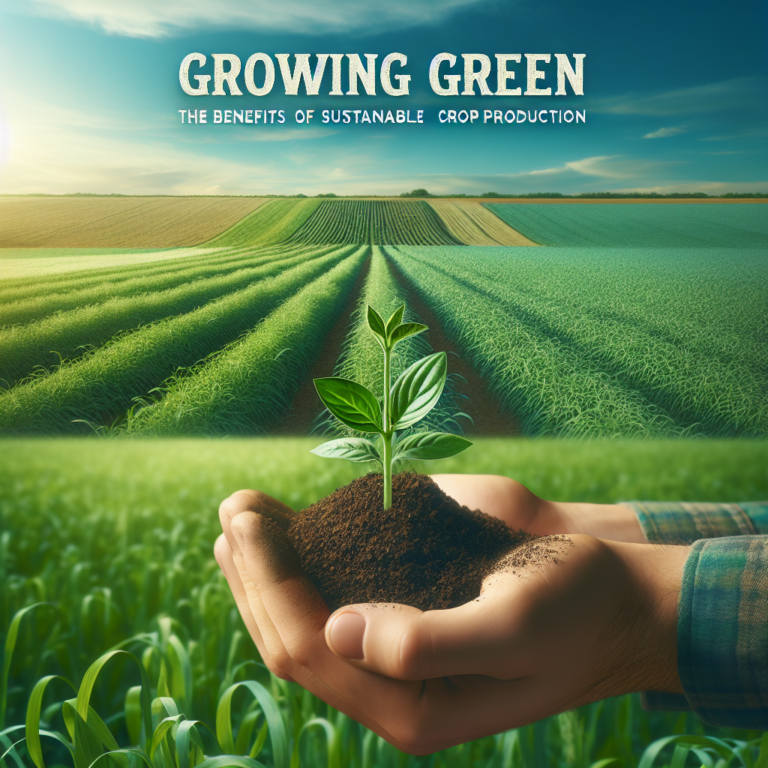Growing Green: The Benefits of Sustainable Crop Production
Sustainable crop production has become a hot topic in the world of agriculture as more people are becoming aware of the importance of environmentally-friendly farming practices. With the growing population and increasing pressure on food production, sustainable crop production is a way to ensure that we can continue to feed ourselves while also protecting the planet. Here are some of the key benefits of sustainable crop production:
Environmental Benefits:
One of the main advantages of sustainable crop production is its positive impact on the environment. By using practices such as crop rotation, cover cropping, and integrated pest management, farmers can reduce the need for harmful chemicals and synthetic fertilizers. This not only helps to protect the soil and water quality, but also reduces the carbon footprint of farming operations. Sustainable crop production also helps to conserve biodiversity by creating a more diverse and resilient ecosystem on the farm.
Health Benefits:
Another important benefit of sustainable crop production is its impact on human health. By reducing the use of chemicals and pesticides, sustainable farming practices help to protect farm workers, consumers, and the surrounding community from exposure to harmful substances. Organic farming, in particular, has been shown to have higher levels of nutrients and antioxidants, making organic produce a healthier choice for consumers.
Economic Benefits:
In addition to the environmental and health benefits, sustainable crop production can also offer economic advantages for farmers. By adopting sustainable practices, farmers can reduce their input costs and improve the efficiency of their operations. This can lead to higher yields, higher quality produce, and increased profitability for farmers. Sustainable farming practices can also help to create new markets for organic and sustainably-produced products, opening up new opportunities for farmers to diversify their income.
Resilience Benefits:
Climate change is a growing concern for farmers as changing weather patterns can have a significant impact on crop production. Sustainable crop production practices, such as agroforestry and conservation agriculture, help to improve the resilience of farming systems to climate change. By building healthy soils and diversifying crops, farmers can better withstand extreme weather events and adapt to changing conditions.
In conclusion, sustainable crop production offers a range of benefits for farmers, consumers, and the environment. By adopting practices that focus on long-term sustainability, we can ensure that we are able to feed ourselves without compromising the health of the planet. As consumer demand for sustainably-produced food continues to grow, farmers who embrace sustainable crop production will be well-positioned to thrive in the future.
